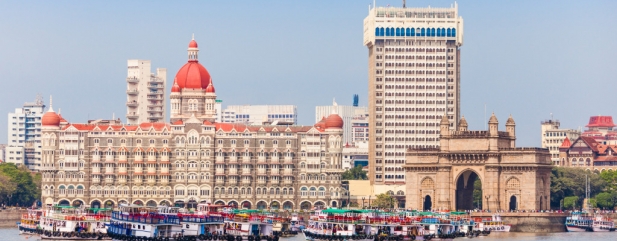Archived article
Please note that tax, investment, pension and ISA rules can change and the information and any views contained in this article may now be inaccurate.
Why JPMorgan Indian is a hot recovery prospect

A wide 15.5% discount to net asset value (NAV) on the JPMorgan Indian Investment Trust (JII) should interest portfolio builders looking for exposure to one of the globe’s biggest, most exciting long-term growth markets.
While performance in the six months to 31 March disappointed, JPMorgan Indian’s NAV has in fact outperformed the MSCI India Index benchmark in six of the past eight financial years and the portfolio, which outperformed the benchmark in April, looks primed for recovery.
HIGH QUALITY BIAS
The largest, most liquid London-listed Indian equity
fund, JPMorgan Indian is managed by seasoned Indian equities experts Rukhshad Shroff and Rajendra Nair, supported by the well-resourced JPMorgan Emerging Markets team.
The pair invest in good quality businesses with superior growth prospects, holding them for the long term. Stock selection is driven by quality first, followed by valuation and the managers flat out won’t buy a stock if they distrust management.
A few years ago, the managers became more optimistic on the domestic economy and tilted the portfolio towards cyclicals, notably banks – top 10 positions include HDFC Bank, Kotak Mahindra Bank and IndusInd Bank – as well as building materials and autos.
For the half year to 31 March, NAV fell by 3.6% compared with a 0.5% decline in the benchmark, underperformance largely reflecting the trust’s low weighting in index heavyweights Reliance Industries and Infosys.
An overweight position in cement sector players ACC and Ambuja Cement, in Bajaj Auto and select mid and small caps detracted from performance, as did gearing in a weak market. Overweight positions in Jubilant Foodworks, Shriram Transport Finance and auto sector players Maruti Suzuki and Ashok Leyland lent some support.
LOOK TO THE LONG TERM
India’s economy is growing more rapidly in 2018 than it did in 2017, yet the headwind from high valuations means the stock market hasn’t made progress.
The investment managers expect the next year to be a period of increased uncertainty and volatility in India, currently in an important election cycle. You should therefore treat this as a high-risk investment.
Since Narendra Modi came to power the market has risen significantly more than underlying corporate earnings. Equities have rerated thanks to macro reforms and because investors have expected a recovery in the pace of economic growth and corporate profits.
Gearing in the fund has been reduced to provide the flexibility to capitalise on buying opportunities ‘should the market weaken in the face of increased uncertainty’.
For investors prepared to look past near-term challenges, JPMorgan Indian offers a compelling play on a market with ‘great human potential and huge scope for improving its economic performance’, to quote chairman Richard Burns. (JC)
Important information:
These articles are provided by Shares magazine which is published by AJ Bell Media, a part of AJ Bell. Shares is not written by AJ Bell.
Shares is provided for your general information and use and is not a personal recommendation to invest. It is not intended to be relied upon by you in making or not making any investment decisions. The investments referred to in these articles will not be suitable for all investors. If in doubt please seek appropriate independent financial advice.
Investors acting on the information in these articles do so at their own risk and AJ Bell Media and its staff do not accept liability for losses suffered by investors as a result of their investment decisions.
Issue contents
Big News
- BT in charm offensive to get investors back onside
- Markets are climbing the ‘wall of worry’
- Battle for control at Stobart and Petropavlovsk
- What does the Government sale of RBS stake mean for investors?
- Why Hotel Chocolat continues to be a sweet investment
- Bodycote boom time raises the fear of inevitable bust
 magazine
magazine









